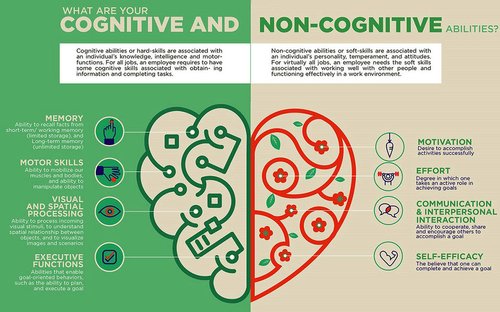



Volontariato
27 Gennaio 2019

Confronto tra Il principe e i Discorsi sopra la prima deca di Tito Livio
27 Gennaio 2019Parmenides of Elea was one of the most influential pre-Socratic philosophers. His philosophy, expressed in the poem On Nature, centers on a rigorous inquiry into being and reality.
Being as Unique and Unchanging
Parmenides’ central thesis is that being is and cannot not be. In other words, being is eternal, unchanging, indivisible, and complete. Non-being, in contrast, cannot exist, because thinking of non-being means thinking of something that isn’t, which is a contradiction.
- Being is eternal: It had no beginning and will have no end.
- Being is unchanging: It undergoes no transformation or change.
- Being is indivisible: It is a single, homogeneous whole.
- Being is complete: There can be no void, as emptiness would imply non-being.
The Sensible World as Illusion
For Parmenides, the sensible world, with its continual changes and multiplicity, is an illusion—a product of our deceptive senses. True reality is the single, unchanging being, which can only be grasped through reason.
The Paths of Inquiry
Parmenides distinguishes two paths of inquiry:
- The path of truth: The path of reason, which leads to knowledge of being.
- The path of opinion: The path of the senses, which leads us to believe in an illusory, changing world.
The Influence of Parmenides
Parmenides’ thought profoundly influenced Western philosophy. His distinction between being and non-being, reason and sense, marked a turning point in the history of thought.
- Ontology: Parmenides is considered the founder of ontology, the branch of philosophy that studies being as such.
- Metaphysics: His reflections on being influenced metaphysics, the discipline that deals with the fundamental principles of reality.
- Epistemology: His distinction between reason and sense laid the groundwork for subsequent epistemological reflections on the nature of knowledge.
Parmenides and Other Pre-Socratic Philosophers
Parmenides stands in contrast to previous philosophers, such as Thales, Anaximander, and Anaximenes, who sought to identify a material principle from which everything originates. Parmenides, instead, focuses on the nature of being itself, transcending the search for a material principle.
In Summary
Parmenides is a foundational thinker for understanding the origins of Western philosophy. His inquiry into being laid the groundwork for many questions that still fascinate philosophers today. His view of being as unique, unchanging, and eternal, though radical, represents an essential starting point for any reflection on the nature of reality.
The Relationship Between Parmenides and Heraclitus
Parmenides and Heraclitus represent two opposing poles in pre-Socratic philosophy. Their worldviews are so contrasting that they are often considered as the first expressions of two major lines of thought:
- Heraclitus: Advocates the continuous and ceaseless becoming of all things. His famous aphorism panta rei (everything flows) expresses the idea that reality is in perpetual flux.
- Parmenides: Affirms the existence of a unique, unchanging, eternal being. For him, becoming and change are illusions of the senses.
Their opposition is fundamental to philosophy: their extreme positions have sparked a millennia-long debate on the nature of reality, the relationship between being and becoming, and between reason and the senses.
An Apparent Contradiction
It seems impossible to reconcile these two opposing views. However, some scholars have sought points of contact between the two philosophers, such as the idea of an eternal and unchanging principle present in both Heraclitus’ logos and Parmenides’ being.
The Relationship Between Parmenides and the Pythagoreans
The relationship between Parmenides and the Pythagoreans is a complex and debated topic. Both groups made fundamental contributions to Greek philosophy, yet their perspectives show significant affinities and differences.
- Similarities:
- Centrality of mathematics: Both the Pythagoreans and Parmenides attributed a fundamental role to mathematics in understanding reality. The Pythagoreans saw numbers as the arché, the principle of all things, while Parmenides emphasized the importance of logic and rationality to access truth.
- Pursuit of unity: Both sought a unifying principle behind the multiplicity of the sensible world—the Pythagoreans in numbers, and Parmenides in the unique, unchanging being.
- Critique of the sensible world: Both considered the sensible world an illusion or appearance, searching for a deeper, more stable reality.
- Differences:
- Concept of being: The Pythagoreans identified being with numbers, while Parmenides conceived of it as an indivisible, homogeneous unity.
- Plurality: The Pythagoreans accepted a plurality of principles, while Parmenides asserted the uniqueness of being.
- Method: The Pythagoreans used a more intuitive and symbolic approach, while Parmenides took a more rigorously logical and rational approach.
In conclusion, the relationship between Parmenides and the Pythagoreans is characterized by a complex interaction of affinities and differences. Both laid the foundations of Western philosophy, but their perspectives developed in different directions.
Parmenides and the Sophists
The relationship between Parmenides and the Sophists is marked by profound opposition. While Parmenides affirms the existence of an absolute, unchanging truth accessible only to reason, the Sophists question the existence of objective, absolute truth, arguing that truth is relative and depends on the viewpoint of the knowing subject.
- Relativism vs. absolutism: The Sophists, led by Protagoras, held that “man is the measure of all things,” meaning truth is subjective and depends on individual perceptions. Parmenides, on the contrary, affirmed the existence of an objective, absolute truth—being, which transcends individual opinions.
- Language and reality: The Sophists focused on the analysis of language and its persuasive power, highlighting the conventional and relative nature of words. Parmenides, instead, used language as a tool to access absolute truth.
In summary, while Parmenides sought a rational and objective foundation for knowledge, the Sophists questioned the very possibility of objective, absolute knowledge.
The Influence of Parmenides on Platonic Philosophy
Parmenides’ influence on Plato is evident. Plato, though not fully embracing the Parmenidean view, adopted some fundamental elements:
- The reality of ideas: Plato postulates the existence of an eternal, unchanging world of ideas, contrasting with the mutable, imperfect sensible world. This distinction between two levels of reality recalls the Parmenidean distinction between being and becoming.
- Rational knowledge: Plato, like Parmenides, values reason as a tool to access true knowledge. For both philosophers, the senses are deceptive and provide only partial, imperfect knowledge of reality.
However, Plato introduced novel elements compared to Parmenides:
- Participation: Sensible things participate in ideas, as imperfect copies. This way, Plato tries to reconcile the existence of a sensible world with that of the world of ideas.
- The soul: Plato attributes to the soul a divine, pre-existing nature capable of knowing the ideas.
Criticisms of Parmenides’ Thought
Parmenides’ thought, due to its radical nature, has faced numerous criticisms:
- Rigidity: His view of being as unique and unchanging seems contradictory to empirical evidence of change and multiplicity.
- Abstraction: His philosophy, overly abstract and removed from the sensible world, risks becoming mere speculation.
- Inability to explain movement: If being is unique and unchanging, how can we explain the movement and change we observe in the world?
Despite the criticisms, Parmenides’ thought has spurred millennia of philosophical debate and remains a reference point for understanding the nature of reality.
The Influence of Parmenides on Medieval Philosophy
Parmenides’ influence on medieval philosophy was profound and complex. His ideas on being and non-being fueled crucial debates on the nature of God, creation, and the relationship between faith and reason.
- Augustine: Saint Augustine, one of the most important Christian philosophers, adopted Parmenides’ idea of an eternal and unchanging God, creator of everything that exists.
- Scholasticism: The medieval scholastic tradition addressed the problem of being and nothingness, drawing on Parmenidean theses and seeking to reconcile them with Christian doctrine.
In short, Parmenides provided a fundamental starting point for medieval reflection on the nature of God, reality, and knowledge.
Modern Interpretations of Parmenides’ Thought
Parmenides’ thought continues to provoke interest and debate among contemporary philosophers. Modern interpretations focus on various aspects:
- Logic: Parmenides is often considered one of the founders of logic, for his rigorous analysis of the concept of being and his use of reductio ad absurdum.
- Metaphysics: His thought is studied in relation to fundamental metaphysical questions, such as the existence of a reality independent of the mind and the nature of time.
- Language: The analysis of Parmenides’ language is essential for understanding his thought and its implications for philosophy of language.
- Ontological interpretations: Emphasize the importance of being as the foundation of reality.
- Epistemological interpretations: Focus on the relationship between reason and sense in knowledge.
- Linguistic interpretations: Analyze the role of language in constructing reality.
In summary, Parmenides’ thought, although formulated over 2,500 years ago, remains relevant for contemporary philosophy. His ideas on being, non-being, and knowledge still challenge philosophers today.
The Influence of Parmenides on Contemporary Philosophy
Parmenides’ thought continues to influence contemporary philosophy, especially in areas such as metaphysics, epistemology, and philosophy of language.
- Ontology: Parmenides is considered the father of ontology, the branch of philosophy that studies being as such.
- Metaphysics: His reflections on being influenced metaphysics, the discipline that deals with the fundamental principles of reality.
- Epistemology: His distinction between reason and sense laid the groundwork for subsequent epistemological reflections on the nature of knowledge.
Conclusion
Parmenides of Elea, with his radical inquiry into being and non-being, represents a fundamental figure in Western philosophy. His distinction between truth and opinion, reason and sense, established a paradigm that continues to influence philosophical thought.
Parmenide: altro materiale didattico e appunti su atuttascuola
-
Appunti di filosofia greca Secondo modulo di filosofia antica: studio del pensiero da una prospettiva diversa, riflessioni e commenti dei testi di Anassimandro, Eraclito, Parmenide, Melisso e Simplicio – di Alissa Peron
Parmenide: materiale didattico e appunti su altri siti
-
Sull’essere di Parmenide del prof. Benito Marino in formato PDF
-
Parmenide di Diego Fusaro
-
Parmenide di Hans Georg Gadamer
-
Parmenide di popoli antichi
-
Parmenide di Hans Georg Gadamer (sito rai)
-
Parmenide del prof. Donato Romano
Audio Lezioni, ascolta il podcast di Filosofia del prof. Gaudio
Ascolta “Filosofia” su Spreaker.




